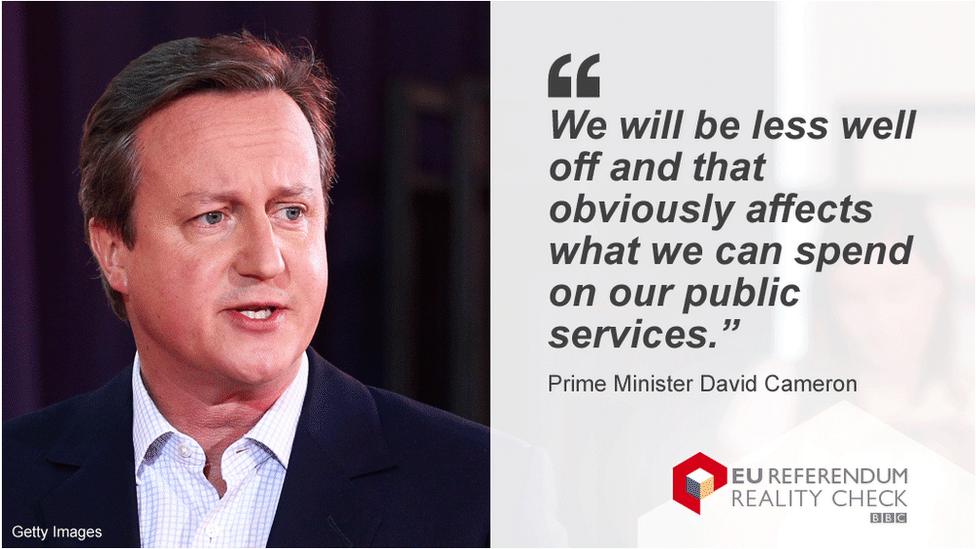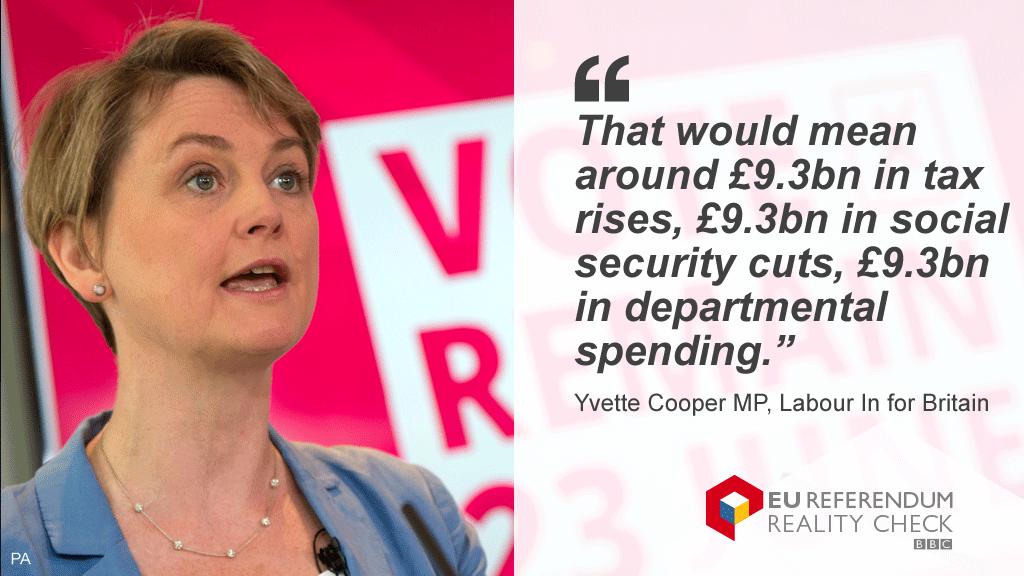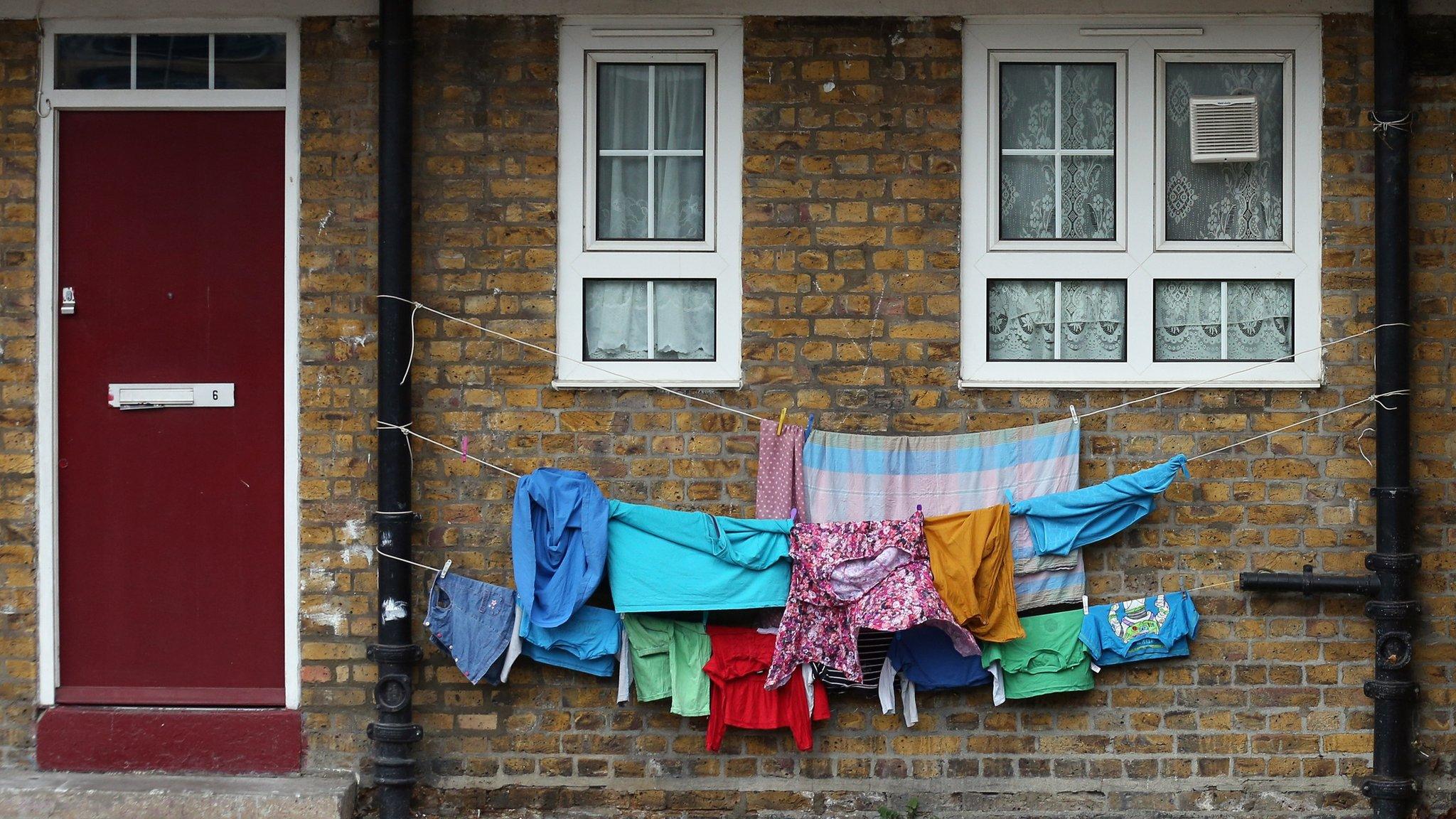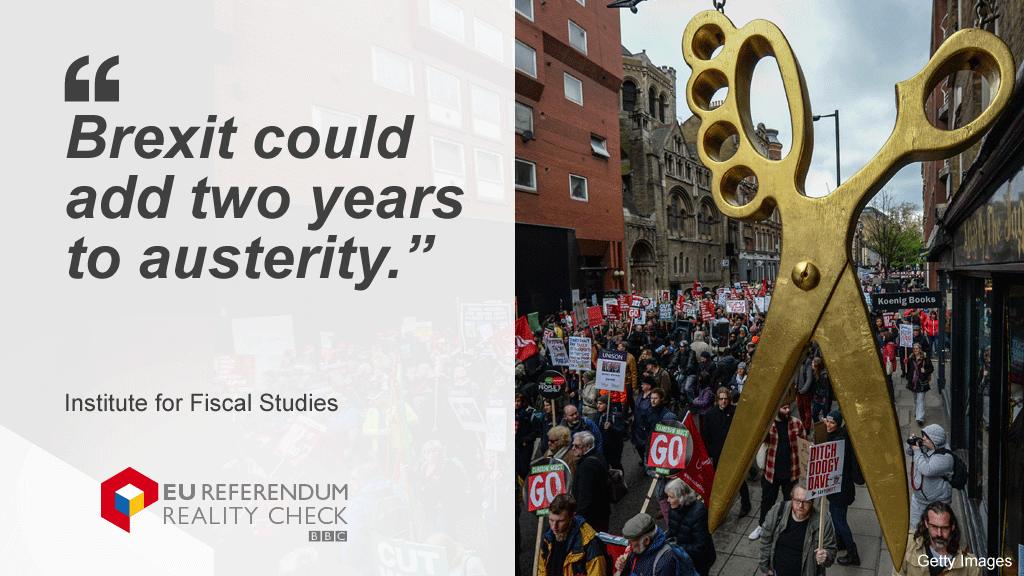Reality Check: Would Brexit mean cuts to pensions, defence and the NHS?
- Published

The claim: The UK leaving the European Union would mean cuts to pensions, defence and the NHS.
Reality Check verdict: What, if anything, gets cut if there is a Brexit will be a matter for the government to decide.
On the Andrew Marr Show, David Cameron talked about the effects of leaving the European Union.
"If we restrict our access [to the single market] we will be less well off and that obviously affects what we can spend on our public services," he said.
In the past few days, voters have been warned that leaving the European Union would have severe effects on different areas of public spending.
We've been told both by David Cameron and Labour's Tom Watson that the triple-lock protection on state pensions would be threatened.
We've had Chancellor George Osborne warning that Brexit would lead to between £1bn and £1.5bn of cuts to defence spending.
He pointed out that even if the government stuck to Nato's target of spending 2% of national income on defence, if national income fell, then so would defence spending.
And the prime minister has also warned about spending on the NHS being threatened if the UK left the EU.
Why are they making these warnings? Because economic forecasters have said that leaving the European Union would mean the economy would grow by less than it would have done. That would mean lower tax revenues for the government, which would mean it would struggle to achieve a budget surplus as promised in 2019-20.
What the government chose to do about that would be a question of policy, as David Cameron confirmed, but that has not stopped various groups having a guess.
The Institute for Fiscal Studies predicted, external the government would decide to delay balancing the budget, bringing in an extra one or two years of austerity at the current rate.
Labour In for Britain said the government would attempt to balance the budget in 2019-20, meaning it would need to make savings of £28bn, which would be divided equally between tax rises, departmental spending cuts and cuts to social security spending.
The National Institute of Economic and Social Research said the government would be trying to save an extra £44bn in 2019-20.
It is also possible that the government could decide not to balance the budget and borrow more instead.
There is a pretty strong consensus that the initial economic shock from a vote to leave the EU would make it harder to achieve a balance in 2019-20, although it could be smaller than some groups have predicted.



- Published10 June 2016

- Published9 June 2016

- Published25 May 2016

- Published22 February 2016
